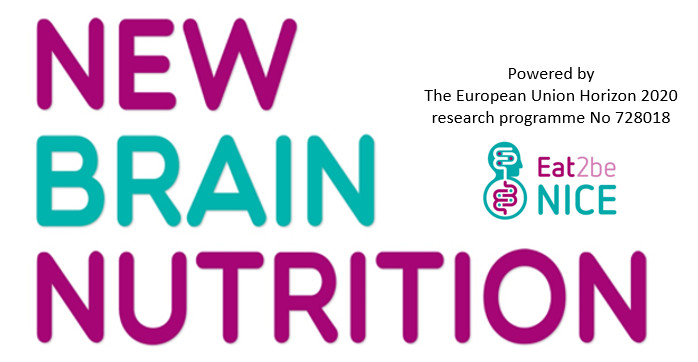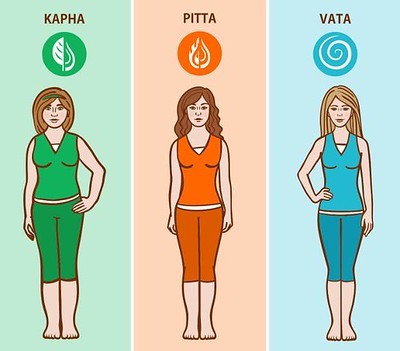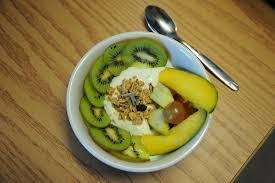TIPSHEET: How to integrate Ayurveda into your daily life


What is Ayurveda and what´s so good about it?
Ayurveda is an ancient holistic healing art from India advocating a happy and wholesome life. Translated it means “knowledge from life”. Ayurveda helps to gain inner harmony and peace by e.g. implementing helpful structures
and an inner routine. The main target is to prevent illnesses, but in some cases it can also be used as treatment. So there is even evidence, that the approach may have an effect on ADHD, depression, anxiety symptoms and
alzheimer`s disease.
In Ayurveda, it is assumed that everything is made out of the five elements: air, earth, water, fire and space. So are the three energetic basic principles of life - the Doshas: Vata, Pita and
Kapha. Every person has a very individual constitution of these three. With the knowledge of one's own Dosha type combination (often one or two Doshas are more pronounced), you can ideally respond to the needs of body,
mind and soul. If one Dosha is too strong, an imbalance will arise and the goal is to get back to the natural balance.

Note that nutrition is only one little aspect of the holistic Ayurveda approach. There is even more like special cleaning (e.g. tongue scraper), massages or panchakarma treatments for balancing out your energies and living
your full potentials.
Overall, Ayurveda is an individual approach, because not everything works for everyone, and depending on the Doshas, different applications or diets are advised. Though, the following general recommendations may
work for many people independent of their constitution type.
How can you successfully integrate Ayurveda as simply as possible into your life?
Drink plenty, preferable warm water, ginger water or teas
Do not drink too much and not too little. The reference value says that about 30 ml per kg is far enough for your body. Drinking too much can, on one hand, lead to vitamin deficiency and blood thinning. Drinking too
little, on the other hand, might lead to headache, lack of concentration, and tiredness. By drinking cold water the digestive fire may be extinguished and additionally the body has to work harder to digest cold water. Therefore
drinking warm or hot water/tea dispels tiredness and increases wellbeing.

Eat three times a day and no snacking
In Ayurveda it says that eating three times a day is desirable. At
best a light breakfast is eaten between 6 and 10 o’clock, followed by lunch between 12 and 2 o’clock (around 4 hours break in between) as biggest meal for the day and ending the food intake before 7 o’clock in the evening
with a light dinner. Try not to miss one and eat at similar times. Furthermore, avoid snacking! With having a snack you disturb the digestion process, and reduced vitality and tiredness may follow.
Just eat when you are hungry, and in appropriate quantities
The most important thing is to listen to your body. Follow your natural feeling of hunger. If you need a typical size, you can orientate yourself by the quantity that fits into two hands. Everybody is different; depending on the individual
constitution type, some people need bigger portions than others do. Therefore it´s even more important to listen to your body: “Is it really a feeling of physical hunger?” or “How full is my stomach?”
Consume warm, seasonal and regional food preferably
In general, warm food is much easier to digest. Even vegetables like tomatoes or cucumber and fruits, like apple or peach, are better for your digestion if you cook or simmer them. Try to eat as fresh, regional and seasonal as possible
and reduce microwave food and fast food. Increase the proportion of vegetables in your meal and use high quality oil or ghee for cooking.
Use a diversity of spices and herbs
The aromatic seeds, roots and herbs serve as flavor carriers, digestive enhancers and remedies in daily nutrition. Very popular in Ayurveda are for example the following spices: ginger, turmeric, coriander, cardamom, saffron and cinnamon.
In addition, local herbs such as parsley, basil and chives can support wellbeing. Regional and seasonal spices and herbs should be preferred.
Eat Slowy and Consciously
Nowadays people are usually in a hurry. While eating, it´s important to be mindful
and grateful. Even if it is only for a short moment, seek a quiet place and participate all the senses by eating attentively and consciously.

Start Slowyl - Just 4 out of 7 days
It is important to be more flexible and not too strict with yourself. If you want to eat very late breakfast on Saturday and no lunch - just do it! - your aim should be to follow your self-made rules for a better life 4 days out of 7, so there are still 3 days to sacrifice your needs. Moreover, when you have noticed over time what makes you feel good, you can decide on your own how you want to shape your lifestyle.
Relax
Do not stress yourself! The goal is not to follow the “rules” always perfectly. Its´s more important that you learn to listen to your body: What you need and feels right for you!

Hanna Kurtz, B.Sc.
References
Schwandt, Dana (2019): Dein Neuanfang mit Ayurveda: Wie du deinen Stoffwechsel optimierst und dich wieder ins Gleichgewicht bringst. München: Riva.
Meena, Mukesh,Kumar (2017): Review article on prevention and treatment of attention-deficit hyperactivity disorder ((ADHD) in children through ayurveda. World Journal of Pharmaceutical Research.
Gupta, Meenakshi & Singh, Madhu (2015): Recent researchers on ajurvedic herbs in the management of attention deficit hyperactivity disorders (ADHD) in children. Journal of Ajurveda & holistic medicine.
https://blog.sonnhof-ayurveda.at/was-ist-ayurveda
https://www.womenshealth.de/soulsister/ayurveda-rituale-fuer-mehr-energie-im-alltag-281753.html
https://www.yogabasics.de/10874/10-tipps-ayurveda-ernaehrung/
https://www.ayurveda-journal.de/ayurvedisch-leben/
Author
Hannah Kurtz, B.Sc. is a team member at New Brain Nutrition. She is a psychologist who is finishing
her master’s degree at Goethe-University, Frankfurt am Main, Germany this year. She works at the Department of Psychiatry, Psychosomatics and Psychotherapy University Hospital in Frankfurt where she is researching effects
of nutrition on psychological health, especially in Attention-deficit/hyperactivity disorder (ADHD). Moreover she is a certified Hatha and Vinyasa Yoga teacher.